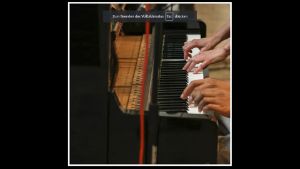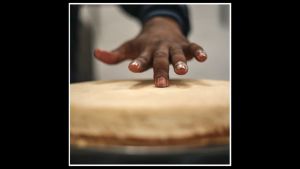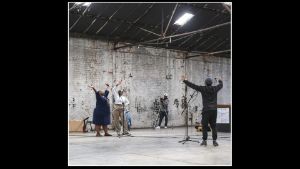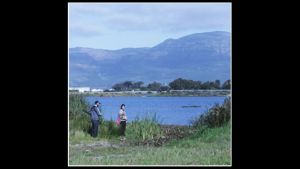Episode 1 – STATIC
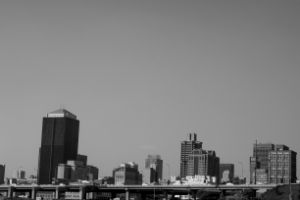
Johannesburgʼs skyline
© Tseliso Monaheng
Inside the Scene: Johannesburg
1
Jozi–ThePlayground
A Feeling and an Experience
Johannesburg. Joburg. Jozi. Whatever moniker people choose to refer to this buzzing, bustling African metropolis, and whichever point of departure anyone views it from, the takeaway is always uniform: experiencing Johannesburg can be life-changing – literally.
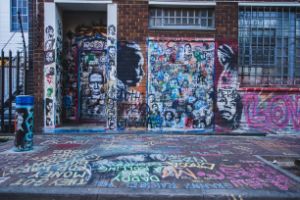
Stencil art in the Maboneng district
© Tseliso Monaheng
For musicians who are based in the city, or who regularly come here for gigs, it is paradise. The people come out in numbers, and the love they show for the music is genuine. Siya Makuzeni, who has been based here for close to two decades, says: “There’s really some beauty to it, because I’ve managed to almost go through the births and deaths of the different cultural movements that have been happening in Johannesburg. But I think one thing that’s always stayed constant [...] is its sheer authenticity.”
Sibusile Xaba, who is based some 60 kilometres away in the city of Tshwane, echoes her sentiments: “In terms of performance, mainstream, Joburg is our playground, it’s our New York, straight. This is where we come, and all the opportunities [are here].”
Johannesburg is a feeling and an experience, something hard to put into words. It is also a city struggling with the same set of realities as other cities elsewhere: gentrification is driving out the lifeblood of the city – the artists and makers – and pushing them to the edges, while widespread corruption is making it hard for local government to maintain basic services. The roads leave a lot to be desired, and water and other basic human needs are a secondary consideration. There is also the reality of the COVID-19 pandemic, which has made it near-impossible for some to survive, and in the process led to key music venues having to shut their doors. Still, the city breathes and the city lives. And music is always available to fill in the gaps when words fail.
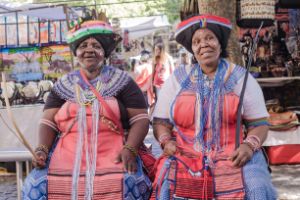
Bow players
© Tseliso Monaheng
2
UpsandDowns
Siya Makuzeni & Sibusile Xaba: On Local Music Scenes
Siya Makuzeni
Siya Makuzeni is an East London-born, Johannesburg-based trombonist, composer and vocalist. Though widely known for her work with Marcus Wyatt, her other contributions are equally important. She regularly ventures outside of the confines of jazz, and has landed in interesting, experimental territory with outfits like Mushroom Hour’s SPAZA project, or her own rock outfit IppYFuzE. For Jazzfest Berlin, Siya discusses her feelings about the Johannesburg music scene, as well as what the city has given her over the years.
Siya was chosen as Standard Bank’s Young Artist for Jazz in 2016, and released her project titled “Out Of This World” the same year. Her latest contribution is on the cross-continental “On Our Own Clock” album, which is a joint release between Johannesburg’s Mushroom Hour Half Hour label and London’s Total Refreshment Centre.
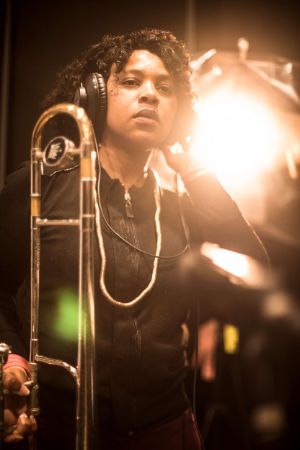
Siya Makuzeni
© Tseliso Monaheng
Interview with Siya Makuzeni
© Tseliso Monaheng
“Those with original authentic voices – I think this is the time for them now.”
Siya Makuzeni
Sibusile Xaba
“From Zululand, we came straight to Pretoria – Tshwane land, beautiful land, you know,” says Sibusile Xaba. A farmer, a composer and a vocalist, he is part of a generation that has managed to tap into the roots of its past in order to get directions regarding the future. Sibusile Xaba is not one to be trapped in one domain. While his past output has been guitar-based African folk, what he has been cooking is a departure of sorts. IzangoMa, the outfit he forms with partner in music, AshK, is liberational space science in sonic form – an African odyssey most rare.
“We are so excited to present IzangoMa, a 15-piece ensemble. It’s a continental collaboration kind of a thing. My band from Mozambique is coming down to collaborate with my band from here. It’s a beautiful glimpse of the future that lies ahead", says Sibusile.
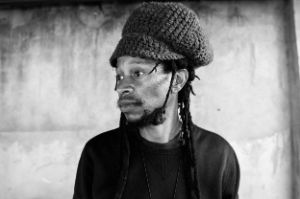
Sibusile Xaba
© Tseliso Monaheng
Interview with Sibusile Xaba
© Tseliso Monaheng
3
IntotheTradition
Madosini & Nduduzo Makhathini: On Indigenous Knowledge Systems
What started out as an attempt to have a conversation between two highly regarded musicians about indigenous knowledge systems, turned into a joyful exchange of ideas and lessons across generations. Moderated by the healer and creative powerhouse Makhosi Khanyisa, and featuring the doyenne of bow music, Madosini, alongside visionary composer Nduduzo Makhathini, this sit-down explores the storied tradition of the instrument, and links this to its functions within the greater society.
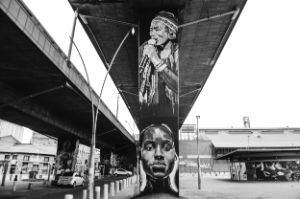
Busi Mhlongo mural
© Tseliso Monaheng
Madosini delves deep into her journey as a young woman, while Nduduzo offers his views regarding how stories like hers make the learning process bearable, even fun, because the students have a sense of history to attach to it – in contrast to Western instruments and modes of teaching which have no real, consequential value to most Africans beyond getting a good grade and passing the course. Makhathini’s experience in the academy – he heads the Music programme at the University of Fort Hare – along with Madosini’s passion for education are evident throughout. A thoroughly satisfying exchange, full of warmth and mutual respect between all those involved.
Madosini, Nduduzo Makhathini and Makhosi Khnysa in conversation
© Tseliso Monaheng
Following this year’s festival edition, another conversation about indigenous knowledge in jazz and creative music in South Africa has emerged. Musician Lungiswa Plaatjies joined Madosini and Cara Stacey at Jazzfest Berlin 2021. She shares her thoughts and experiences on this topic with indigenous music expert Nandipha Mnyani and journalist and traditional healer Vuyiswa Xekatwane.
Video ”Indigenous Knowledge Systems in Jazz and Creative Music”
4
ArtisticEnergythroughCollaboration
Shane Cooper: On Creating New (Sonic) Sentences
Shane Cooper
On his latest creative output, the collaborative project Happenstance, composer and bassist Shane Cooper set out to create a “multi-layered series of sound books” which he then took to the studio and re-arranged. The idea was to create an environment where he could invite collaborators and “generate a whole bunch of music content based on some basic ideas, some basic sketches“, as a way to have musical discussions around different topics.
This part was facilitated through the intervention of the artist William Kentridge’s Centre for the Less Good Idea, where collaborators ranged from Bokani Dyer, a member of Shane’s band MABUTA, to vocalist Zoë Modiga, percussionist Gontse Makhene and drummer Jonno Sweetman.
“This particular live performance at the festival with the Dinaledi Chamber Ensemble draws on experiences from the Happenstance project; it draws on the parts of that experience and the parts of that journey that I found very inspiring and very mobilizing in terms of artistic energy,” says Shane.
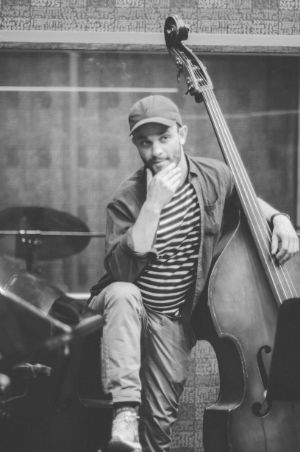
Shane Cooper
© Tseliso Monaheng
“It’s very much about creating environments that are comfortable, with the right amount of danger and the right amount of – not discomfort, but the unknown.“
Shane Cooper
Interview with Shane Cooper
© Tseliso Monaheng
Text, videos & photos
Tseliso Monaheng
Tseliso Monaheng has been a freelance writer, photographer, videographer and video editor for the past 10 years. Based in Johannesburg, his writing has appeared in print and online, and he has contributed to publications worldwide such as The Guardian, The Fader, Red Bull, Chimurenga, Rolling Stone and Africa is a Country.
